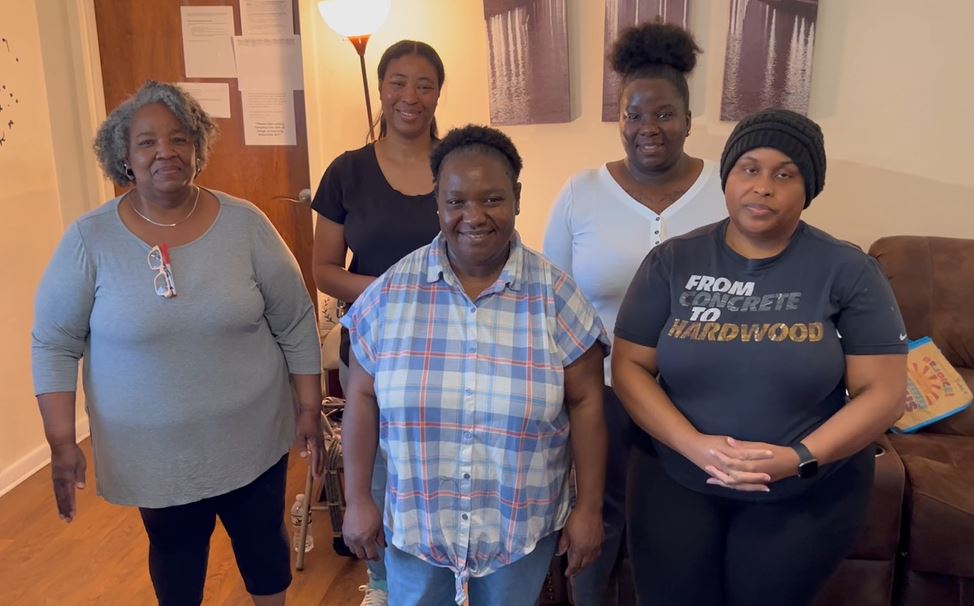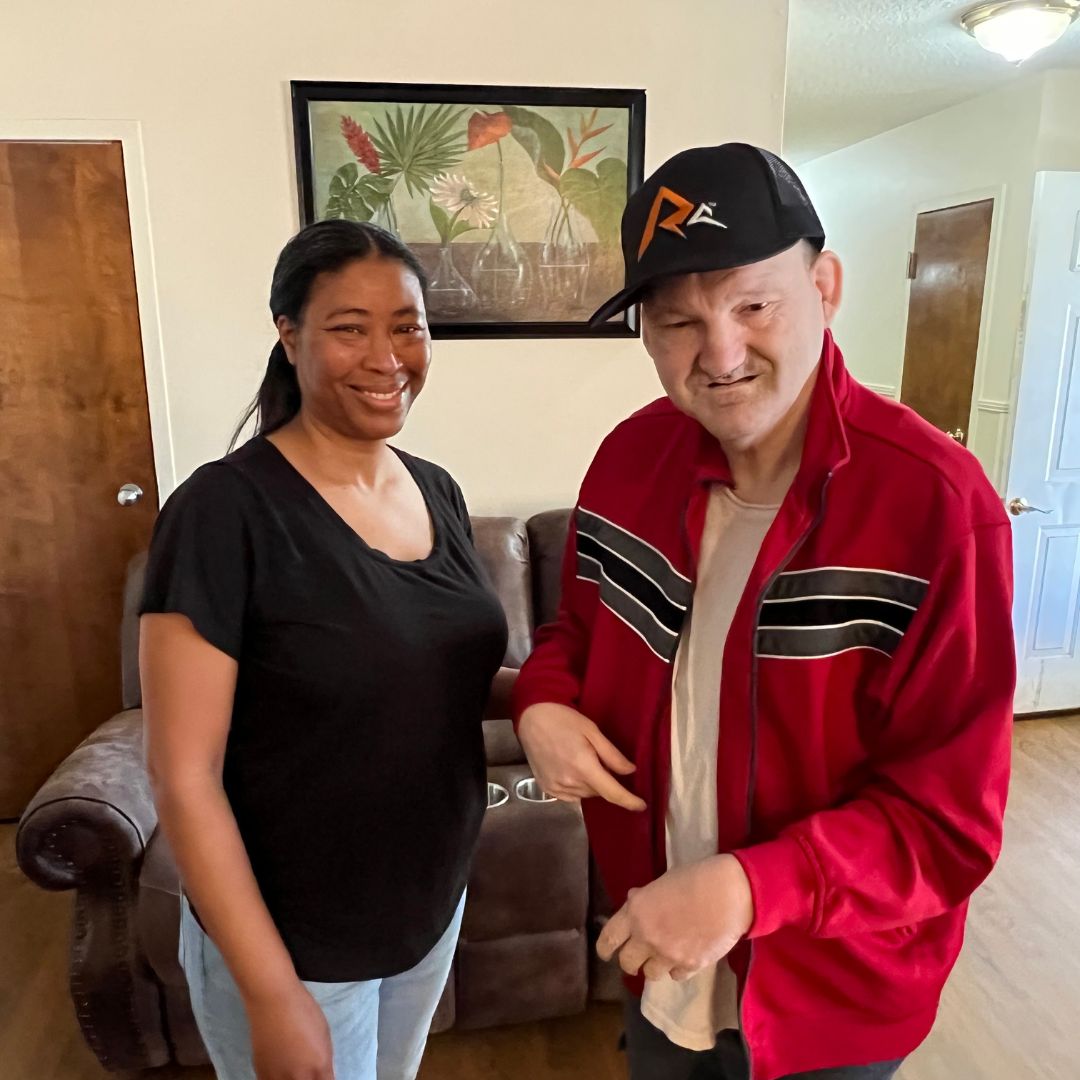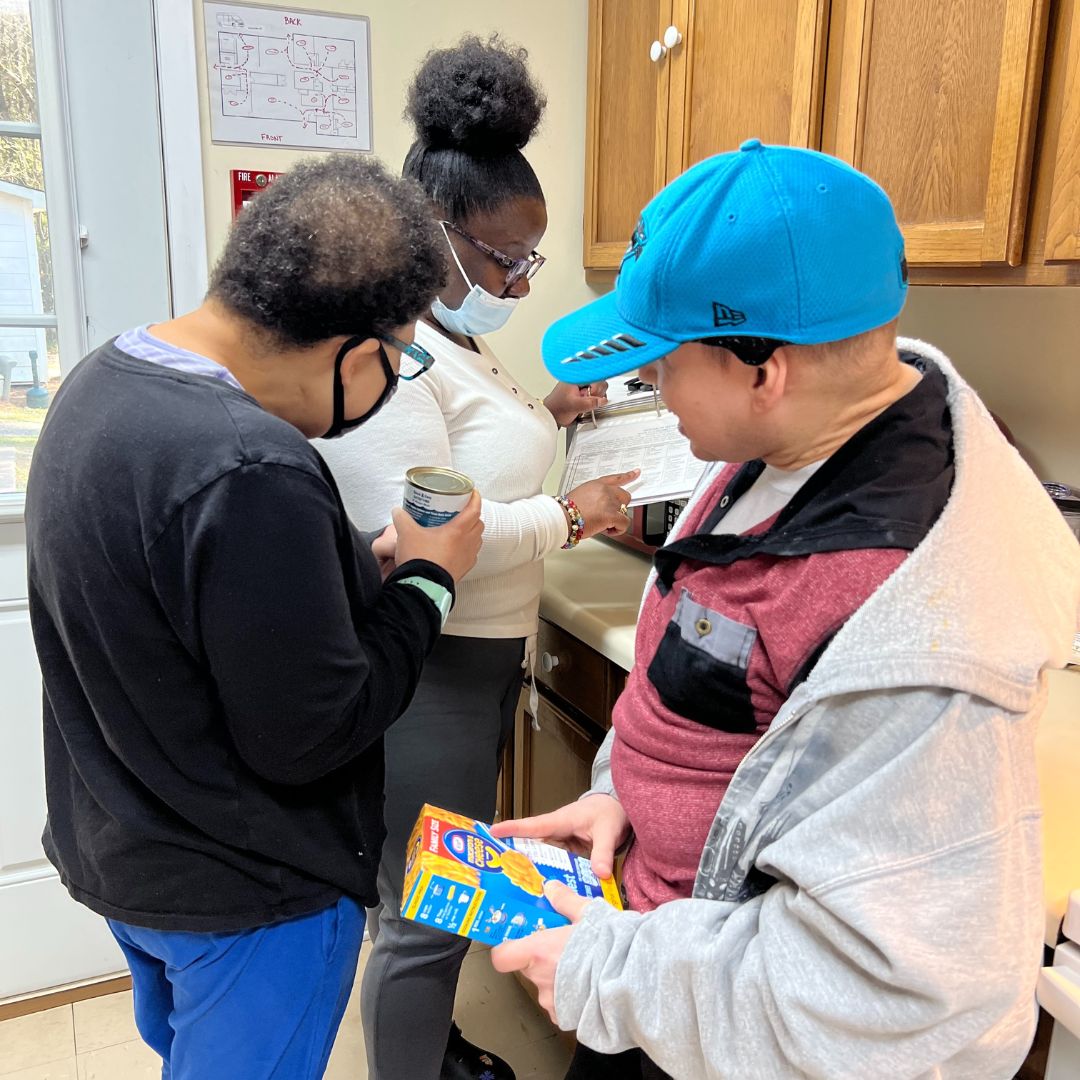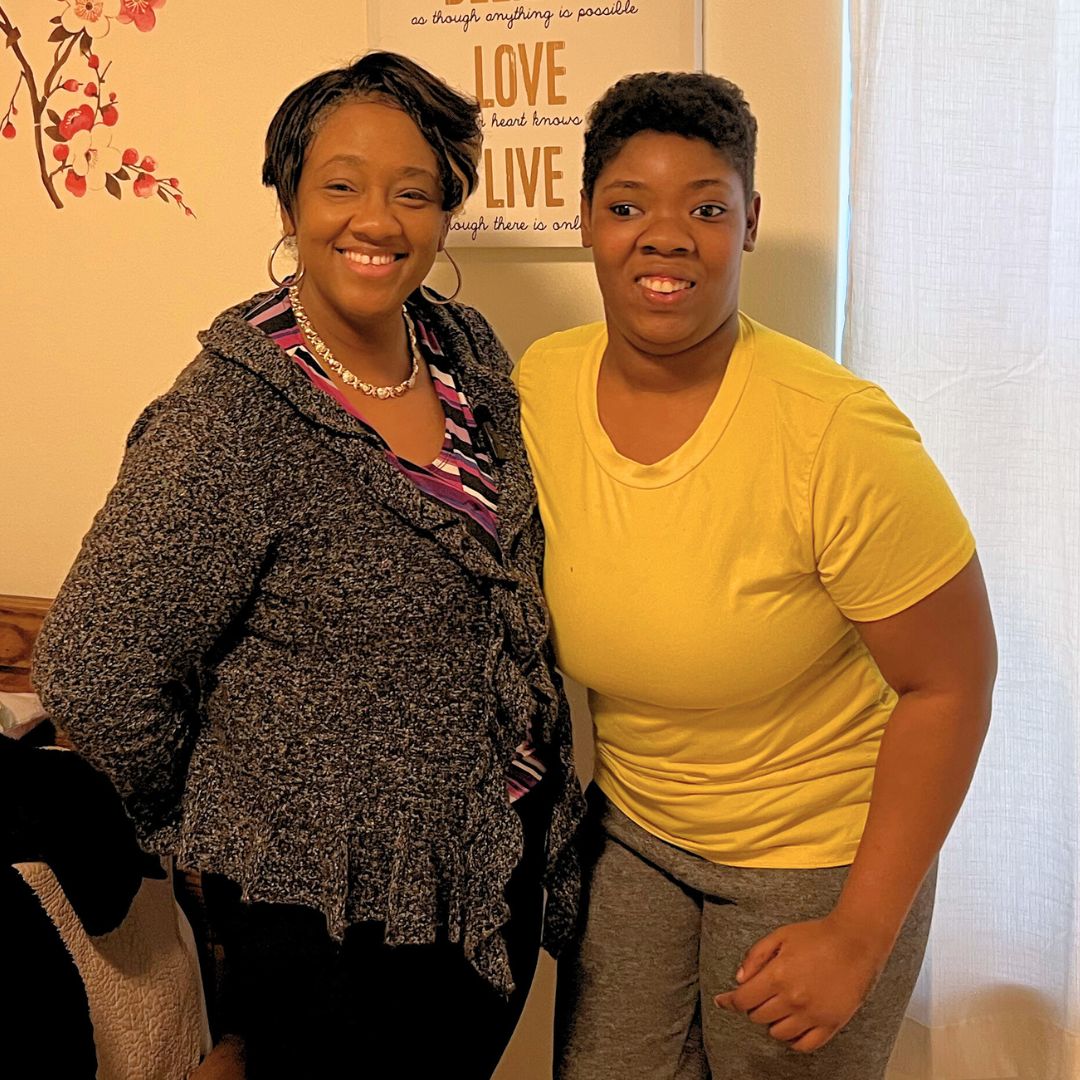Residential Options for People with I/DD Hallmark of Monarch Services
Keisha Bynem has hopes and dreams for her daughter, Shekinah Hamilton, 23, who has cerebral palsy, epilepsy and intellectual and developmental disabilities (I/DD).
She wants her daughter to be as independent as she can be. She wants her daughter to be part of a loving community made up of her peers. She wants her daughter to find a group home that provides compassionate care.
While Shekinah was growing up, Keisha did her best to provide a nurturing family-focused environment despite many obstacles and difficulties.
When together, it is clear the two share a special bond. “She is my heart,” the mom confides.
Keisha believes some of the dreams she has for her daughter are coming true. Shekinah recently moved into Monarch’s Ansonville Home located in Anson County and is adjusting beautifully.
Monarch is one of North Carolina’s largest nonprofit mental health and long-term services and supports providers with group homes and supported living apartment settings available. Monarch group homes are inviting settings with homes for six or less residents. Monarch, with residential homes for people with mental illness and I/DD, have locations that ensure safety, social engagement and person-focused care.
 Parenting as a young, divorced mom was not easy with the stresses of raising a child with I/DD. At 9 months old, her oldest child was diagnosed with cerebral palsy and epilepsy: “I became a stay-at-home mom staying home to care for her. . . . I did not pursue my dreams and career goals but I would sacrifice my whole life for her.”
Parenting as a young, divorced mom was not easy with the stresses of raising a child with I/DD. At 9 months old, her oldest child was diagnosed with cerebral palsy and epilepsy: “I became a stay-at-home mom staying home to care for her. . . . I did not pursue my dreams and career goals but I would sacrifice my whole life for her.”
As her daughter entered her 20s, Keisha knew finding a group home setting in which her nonverbal, adult child would thrive, feel included and support independence might be difficult.
“This decision is one I have been praying for and it is not one I made lightly, and I want to be at peace with that decision,” she says. “I wanted her to be with her peers and people that understood her. Inclusion is important and to be with someone that can understand you and become family is what I wanted for my daughter.”
Residential Manager Rachel Burns and the welcoming group home staff made the decision seamless and helped Keisha breathe a bit easier. Her family celebrated Shekinah moving with a family party. Her room at Ansonville Home is decorated the way she wants. Keisha says it is evident that her daughter is happy and cared for through her smiles and laughter. Shekinah also attends Monarch’s Brighter Visions day program.
Keisha remarks that she feels like she has peace of mind now: “I see how my daughter interacts with the staff and the smile on her face. I am very thankful to the staff who care for her.”
What would Keisha say to a parent of an adult child with I/DD who is hesitant as she was? “I understand your fears. I understand your doubt. I can assure you that making a decision to put your child in a group home setting can not only be beneficial for the child but for you, too,” she says.
For more information about Monarch’s LTSS services and residential opportunities available, click here. Watch this video featuring Keisha and how she has experienced peace of mind with her daughter living in a Monarch home.
Monarch’s Ansonville Group Home supports Adults with I/DD
Monarch Direct Support Professional Roshell Davis has made her career supporting people with intellectual and developmental disabilities and mental illness at Monarch for the past 20 years.
What started out as a practical way for her to be employed transitioned over the years into a lifelong commitment to caring for others. She currently works at Monarch’s Ansonville Home for individuals with intellectual and developmental disabilities (I/DD). Five residents currently call the Monarch location home.
Sometimes, her own compassion can get in the way. “When you have been around the people we support for as long as I have, they become part of your family. That can make it difficult. When they are sick or in pain or having a difficult day, it makes you sad,” she says.
Her Monarch service during the past two decades has included group homes, the children’s home and intermediate care facilities. “Seeing them happy and smiling makes me happy,” she says, noting that residents’ days are full with day program attendance, activities within the community and doctor’s appointments.

Before Roshell walks through the doors of the Ansonville Home, her routine includes pausing for a moment. “Before I enter the doors, I pray for myself, the people we serve and the staff that it is a good day and I am ready. Anything can come up,” she explains.
Ansonville Home’s Residential Manager Rachel Burns has been with Monarch for 34 years and feels the best measurement of compassionate long-term services and supports being provided is residents who are thriving and their families who receive consistent communication.
She may not remember all the details, but Rachel’s first day on the job was March 6, 1989, and shares that the people Monarch serves have taught her many lessons including patience. She enjoys creating a fun environment with laughing, joking and pizza parties. She enjoys hearing the residents sing and talk.
“I like to tell each resident they are my favorite,” Rachel says with a smile.
The secret to doing a job well and providing the care that is needed? “You have to love what you do,” Rachel says simply. Born and raised in Anson County, Rachel is grateful to have been able to make a living where her family resides and she has roots.
Direct Support Professional Quintina Pratt has been with the Ansonville Home for the past 16 years and feels the most rewarding part of her job is seeing residents thrive: “They make strides every day to be able to do more and more on their own.”

Quintina sees the main purpose of her role as support for the residents. “Every morning, I go to work hoping to be a blessing to them all! They are around me for eight hours a day, five days a week. I want to always leave my shift knowing I did the best I could do to make them feel supported and that they have gotten what they needed.
For Roshell, a lesson that caring for individuals with I/DD has taught her is that we are more alike than we are different. “We are all the same. We have good days bad days. We want to be loved and cared for and treated with dignity and respect. They are people just like everybody else,” she shares.
For more information about Monarch’s LTSS residential services, click here.

Posted on: Tuesday June 6, 2023

